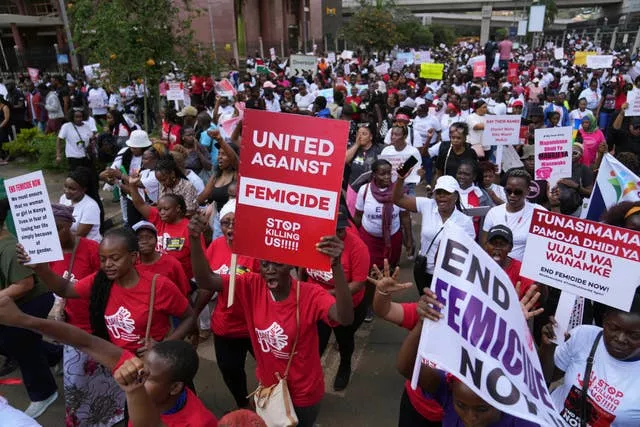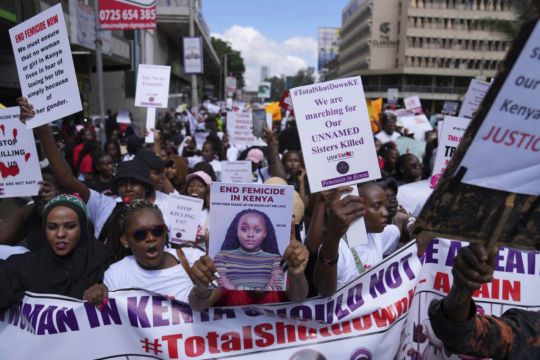Thousands of people are marching in cities and towns across Kenya during protests over the recent killings of more than a dozen women.
The anti-femicide demonstration was the largest event ever held in the country against sexual and gender-based violence.
In the nation’s capital, Nairobi, protesters wore T-shirts printed with the names of women who became homicide victims this month. The crowd, made up mostly of women, brought traffic to a standstill.
“Stop killing us!” the demonstrators shouted as they waved signs with messages such as “There is no justification to kill women”.

The crowd in Nairobi was hostile to attempts by the parliamentary representative for women, Esther Passaris, to address them. Accusing Ms Passaris of remaining silent during the latest wave of killings, protesters shouted her down with chants of “Where were you?” and “Go home!”
“A country is judged by not how well it treats its rich people but how well it takes care of the weak and vulnerable,” Law Society of Kenya president Eric Theuri, who was among the demonstrators, said.
Kenyan media outlets have reported the killings of at least 14 women since the start of the year, according to Patricia Andago, a data journalist at media and research firm Odipo Dev who also took part in the march.
Odipo Dev reported this week that news accounts showed at least 500 women were killed in acts of femicide from January 2016 to December 2023. Many more cases go unreported, Ms Andago said.
Two cases that gripped Kenya this month involved two women who were killed at Airbnb accommodations. The second victim was a university student who was dismembered and decapitated after she was reportedly kidnapped for ransom.

The Jomo Kenyatta University of Agriculture and Technology student’s head was found in a dam on Monday, a week after her dismembered body was found in a bin at the rented home. Two Nigerian men were arrested in connection with her death.
A week earlier, the body of another young woman was found in a flat with several stab wounds after she went there with a man she met online. Police are holding a suspect identified as John Matara. Several women have come forward to say they had previously told police about alleged acts of torture by Matara but he was never charged.
Mr Theuri said cases of gender-based violence take too long to be heard in court, which he thinks emboldens perpetrators to commit crimes against women.
“As we speak right now, we have a shortage of about 100 judges. We have a shortage of 200 magistrates and adjudicators, and so that means that the wheel of justice grinds slowly as a result of inadequate provisions of resources,” he said.







